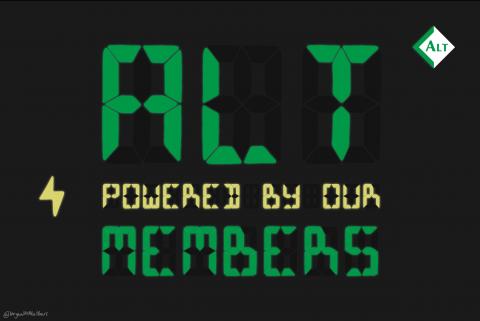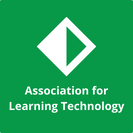
The Call for Proposals for ALT’s Annual Conference 2021 is now open for you to contribute your submissions.
All submissions are made via the EasyChair Submission System. Call for Proposals are open until 19 May 2021.
We invite proposals from learning technology professionals and learners from all sectors in the UK and internationally. The Association for learning technology (ALT) represents individual and organisational members from all sectors and parts of the UK. Our membership includes practitioners, researchers and policy makers with an interest in learning technology. Our community grows more diverse as learning technology has become recognised as a fundamental part of learning, teaching and assessment.
Conference themes
This year’s conference focuses on Shared Experience, Different Perspectives overarching theme and our ability to respond to the complexity of our changing environment. We invite you to submit proposals in response to one of the conference themes:
-
Inclusive practice – our learners’ backgrounds, prior experiences and current situations are incredibly diverse. Inclusive teaching and learning practices are essential morally and sometimes legally. What should those practices be? How do we design and create inclusive student-centred learning environments and activities? What challenges and opportunities do digital environments bring? How do we ensure that we are representing all our students’ voices and meeting their needs?
-
Leadership in learning technology – as the education sector prioritises digital as an area of growth, the learning technologist role is more visible and crucial than ever. There are more opportunities and a growing expectation for us to demonstrate leadership across our diverse roles. What leadership responsibilities do we need to demonstrate (e.g. setting strategy, implementing policies and frameworks, inspiring others)? What are the qualities and skills that we need to develop both now and in the future; How do we develop them? How do we navigate the politics and power struggles of leadership?
-
Digital well-being – the boundaries between working, studying and our personal lives have become increasingly blurred with the digital environment having both a negative and positive impact on different learning demographics. How do we promote and support the mental, physical and emotional health of students, educators and indeed ourselves? How do we develop well being and resilience as digital capabilities? How do we manage the effects on different learning demographics, when the same learning environment can be positive for some and have a negative impact on others?
-
Digital and physical spaces – staff and students have been thrown into the digital space while our buildings await our return. How have we adapted ourselves and our technology to this change? How are we adapting our physical spaces as we move back into them? How do we foster community, belonging and social serendipity in the digital domain, both the formal and informal? How do we optimally utilise, develop and navigate our combined digital and physical places for learning, teaching and assessment?
-
Wildcard – if your work doesn’t relate directly to any of the conference themes, then we encourage you to select the wildcard theme when submitting your learning technology research, practice or policy work from any sector including further and higher education, schools, vocational learning and training, lifelong learning and work-based learning.
What we are looking for
We review all submissions to ensure that we maintain the highest quality and include the broad range of learning technology research, practice and policy of interest to our participants.
Each proposal will be reviewed by two members of the conference committee. We ask that you remove any information from your proposal that will identify you as the author, so that the review is conducted impartially. Proposals are reviewed against the following criteria:
-
Does it explain how the session relates to the chosen conference theme?
-
Is it clearly written (i.e. acronyms are explained, and language appropriate for an international audience and from participants from different sectors)?
-
Does it state what participants will gain from the session and why they should attend?
-
Does it include details of what the session is based on, such as a particular project or initiative or practice? Does it critically reflect on this and evaluate it (i.e. state how many learners/staff are involved, what feedback was collected and how transferable your experience/findings/tools are)?
-
If it is a commercial proposal, we ask that it meets all the above criteria and clearly states what products are being demonstrated or discussed and acknowledges the role of the company in the session.
Registration for presenters
At least one presenter for each proposal needs to register for the conference. We offer all presenters discounted registration for this event. Only when the presenter’s registration booking has been made will the proposal be fully accepted for the conference. Detailed guidance for presenters will be provided in advance of the conference.
We are pleased to be able to offer our initial allocation of scholarships places to participate in OERxDomains21.
Increasing impact and widening dissemination
Resources and recordings from the event will be made available openly to all post-conference.
If you are seeking to increase the impact of your work or looking to disseminate research beyond the conference, we encourage you to make a submission to the Research in Learning Technology journal. The journal is a Gold Open Access journal and we do not levy any charges to ensure researchers can disseminate new work in learning technology as widely as possible.
We look forward to welcoming you (Virtually) in September and wish you good luck with your submission!
